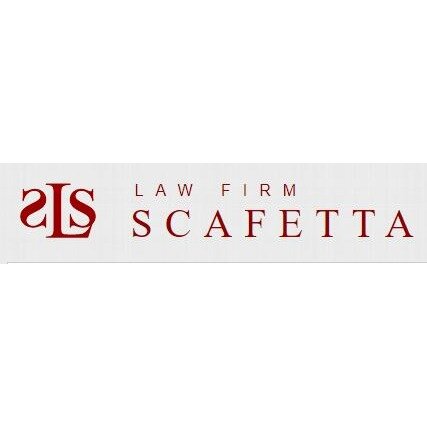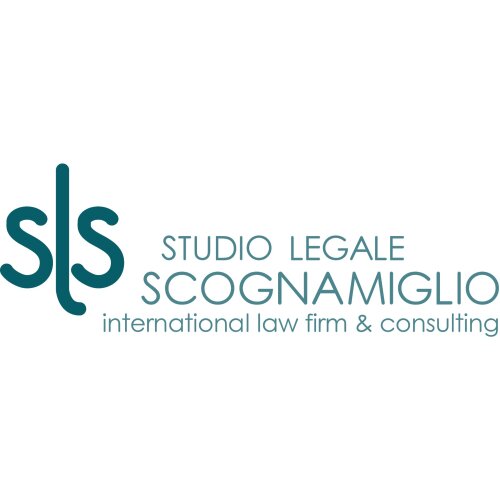Best Tax Lawyers in Naples
Share your needs with us, get contacted by law firms.
Free. Takes 2 min.
List of the best lawyers in Naples, Italy
About Tax Law in Naples, Italy
Tax law in Naples, Italy refers to the legal rules and regulations that govern the taxation system in the city. The tax system in Naples is based on the Italian tax legislation but may have some specific local provisions. Taxes in Naples include both national and local taxes, and they are essential for funding public services and maintaining the infrastructure in the city.
Why You May Need a Lawyer
Seeking legal advice from a lawyer specializing in tax law in Naples, Italy can be beneficial in various situations. Here are a few common scenarios where you may require legal help:
- You are unsure about your tax obligations and want guidance to ensure compliance with the law.
- You have received a tax audit notice from the local tax authorities and need assistance in understanding and responding to it.
- You are facing a tax dispute or controversy and require representation to protect your rights and interests.
- You are planning a significant financial transaction or investment and want to understand the tax implications involved.
- You need assistance with tax planning and strategies to minimize tax liabilities while staying within the bounds of the law.
Local Laws Overview
Here is a summary of key aspects of local laws that are particularly relevant to tax in Naples, Italy:
- Income Tax: Naples follows the Italian Income Tax law, which applies progressive tax rates to individuals and legal entities based on their income levels.
- Value Added Tax (VAT): VAT is an indirect tax on the sale of goods and services in Naples, with varying rates depending on the type of product or service.
- Property Tax: Naples imposes a property tax on real estate, known as "Imposta Comunale sugli Immobili" (ICI), which is determined based on the property's value and location.
- Local Business Taxes: The city levies certain local taxes on businesses, including a municipal tax on business activities ("Imposta Comunale sull'Attività Produttive" - IAP) and a tax on advertising signs and billboards.
Frequently Asked Questions
1. Does Naples, Italy have a capital gains tax?
Yes, Naples, Italy has a capital gains tax. Profits obtained from the sale of certain assets, such as real estate or financial investments, may be subject to capital gains tax. However, the specific rules and rates can vary depending on the asset and individual circumstances.
2. Are there any tax incentives or deductions available in Naples?
Yes, there are various tax incentives and deductions available in Naples, Italy. These can include deductions for specific expenses like healthcare, education, and home renovations. Additionally, certain investments or activities may qualify for regional or national tax incentives to promote economic growth or cultural development.
3. How can I appeal a tax decision or assessment in Naples?
If you disagree with a tax decision or assessment in Naples, you have the right to appeal. The process involves submitting a formal appeal to the competent tax authority within the specified timeframe. It is advisable to seek legal representation to navigate the complex appeals process and present your case effectively.
4. Are there any tax treaties that Naples, Italy has signed with other countries?
Yes, Italy has signed numerous tax treaties with other countries, including Naples. These treaties aim to prevent double taxation and establish rules for determining the taxation rights on specific types of income or assets. If you have international tax concerns, consulting a tax lawyer can help ensure you understand the implications of these treaties.
5. What are the penalties for tax evasion in Naples, Italy?
Engaging in tax evasion in Naples, Italy can result in severe penalties. These penalties may include fines, interest charges, and even criminal prosecution. It is essential to meet your tax obligations and seek professional advice to ensure compliance with the tax laws in Naples.
Additional Resources
If you need further assistance or information regarding tax law in Naples, Italy, consider reaching out to the following resources:
- Local Tax Authorities: Contact the local tax authorities in Naples for specific inquiries and guidance related to local taxes.
- Naples Bar Association: The Naples Bar Association can provide referrals to qualified tax lawyers who specialize in taxation matters.
- Italian Ministry of Finance: Visit the official website of the Italian Ministry of Finance for comprehensive information on national tax laws and regulations.
Next Steps
If you require legal assistance in the field of tax law in Naples, Italy, here are the recommended next steps:
- Identify your specific tax-related concerns or questions.
- Gather relevant documents and information related to your tax situation.
- Research and identify qualified tax lawyers in Naples who specialize in the specific area of tax law relevant to your needs.
- Schedule a consultation with a tax lawyer to discuss your situation and seek their professional advice.
- Based on the consultation, decide whether to proceed with legal representation to address your tax-related issues effectively.
Lawzana helps you find the best lawyers and law firms in Naples through a curated and pre-screened list of qualified legal professionals. Our platform offers rankings and detailed profiles of attorneys and law firms, allowing you to compare based on practice areas, including Tax, experience, and client feedback.
Each profile includes a description of the firm's areas of practice, client reviews, team members and partners, year of establishment, spoken languages, office locations, contact information, social media presence, and any published articles or resources. Most firms on our platform speak English and are experienced in both local and international legal matters.
Get a quote from top-rated law firms in Naples, Italy — quickly, securely, and without unnecessary hassle.
Disclaimer:
The information provided on this page is for general informational purposes only and does not constitute legal advice. While we strive to ensure the accuracy and relevance of the content, legal information may change over time, and interpretations of the law can vary. You should always consult with a qualified legal professional for advice specific to your situation.
We disclaim all liability for actions taken or not taken based on the content of this page. If you believe any information is incorrect or outdated, please contact us, and we will review and update it where appropriate.









